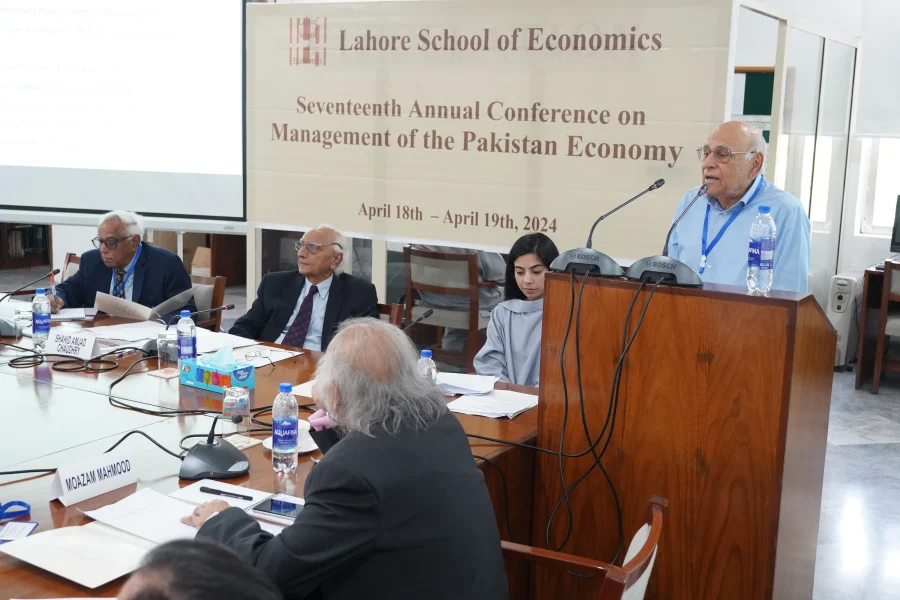The Rector, Dr. Shahid Amjad Chaudhry, opened the conference, by highlighting key policy messages that emerged from the 17 papers being presented.
Dr. Moazam Mahmood, Seemab Sajjid and Amna Noor Fatima presented evidence of that the Pakistani economy will grow at a rate of 2.3% in FY 2024 and showed that a combination of this low growth and high inflation will significantly increase poverty this year and in the coming years. They then showed that approximately 10% of taxes would have to be spent on transfers to lower income households to eliminate this poverty and that this would become larger over the coming years which implies that there must be a significant increase in transfers to households this year, through programs like the Benazir Income Support Program) and in the coming years to address poverty in Pakistan. Pakistan’s economy was projected to grow at 2.3% over FY2024.
Dr. Naved Hamid of the Lahore School of Economics and Dr. Murtaza Syed of he Asian Infrastructure Investment Bank discussed how high interest rates are necessary to combat inflation. They addressed common arguments against and said that even if inflation was a result of supply-side factors and if government borrowing was relatively less responsive to high interest rates, one of the most important ways to curtail inflation is still through interest rates. Dr. Rashid Amjad and Almazia Shahzad of the Lahore School discussed how the stop-go cycle of economic growth in Pakistan is caused by unsustainable fiscal deficits coupled with foreign borrowing. They then proposed that the only way to achieve growth and stabilization in Pakistan was to reverse the roles of the federal and provincial governments.
Dr. Azam Chaudhry, Gul Andaman and Aymen Junaid discussed how the most binding constraint in Pakistan was stagnant exports and presented a proposal for an export-led industrial policy. Dr. Mujtaba Piracha and Dr. Muhammad Irfan of the Government of Pakistan discussed how Pakistan played a key role in the They explained how the WTO works and how Pakistan can use the forum to work in the country’s favor keeping in mind Pakistan’s macroeconomic situation.










